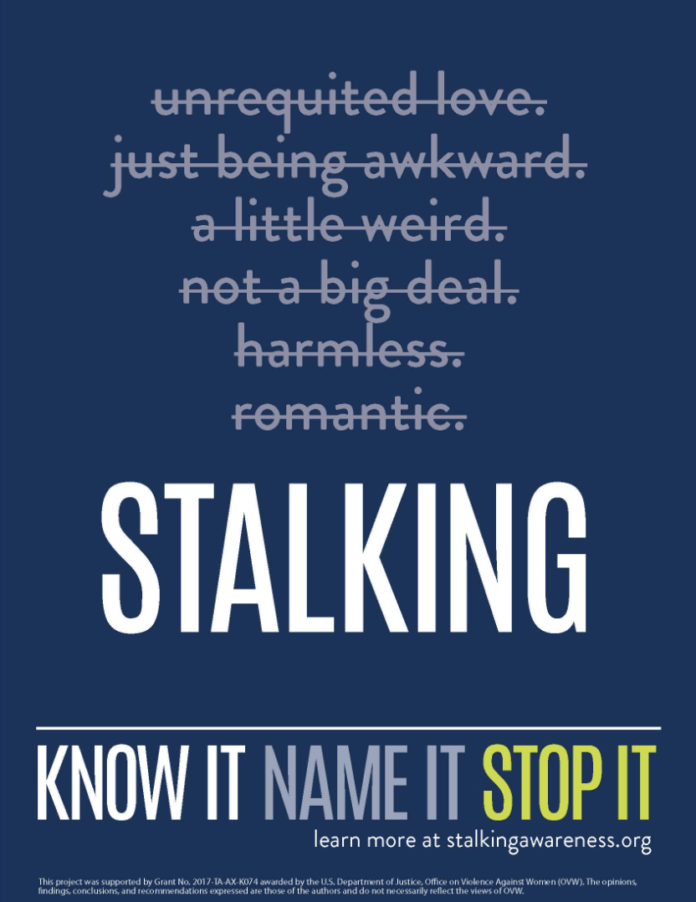
By Emily Cousins | Staff Writer
Stalking is often portrayed in popular culture as romantic or endearing, such as in the Netflix series “You.” National Stalking Awareness Month strives to educate and create awareness on what stalking looks like in real life, and how to get help.
The definition of stalking according to the Stalking Prevention, Awareness, & Resource Center says, “A pattern of behavior directed at a specific person that would cause a reasonable person to feel fear.”
Tracey Tevis, education and prevention specialist for the Equity, Civil Rights and Title IX Office, said in movies and TV shows, the character exhibiting stalking is seen as meek, mild and caring.
Tevis said the examples given in popular culture make it easy to downplay stalking and mistake it for love.
Rockwall sophomore Kasandra Albarran, It’s On Us BU president, said stalking needs to be taken seriously.
“We typically envision stalking to be someone physically following or tracking down another person when in reality, it’s any pattern of behavior that can cause someone discomfort, fear or stress,” Albarran said. “This can take so many different forms; such as unwanted contact through texts, phone calls, voicemails, social media direct messages. These forms of contact don’t always need to be illegal, which I feel like is a big misconception.”
Tevis said that collecting evidence and keeping record of instances of stalking will make it easier when asking for help from law enforcement, resources at Baylor such as the Equity, Civil Rights and Title IX Office and resources in McLennan County such as the Family Abuse Center or the Advocacy Center.
If your friend is being stalked, Tevis said the best thing to do is to believe them and not to downplay their experience. Help them report it to the resources available, and support them.
“Oftentimes, stalking victims can be afraid of reporting it themselves because it’s romanticized and normalized today in society that they don’t notice that these behaviors are stalking or that they’re dangerous behaviors,” Albarran said. “So hopefully, by supporting one another, we can help prevent any psychological damage.”
Albarran said it’s important to get help, because 1 in 5 cases, stalkers will use weapons to harm or intimidate the victim.
Sometimes law enforcement does not take action quickly enough when stalking is reported, but the Equity, Civil Rights and Title IX Office at Baylor take every stalking case reported seriously, Tevis said.
Albarran said the important thing is to find help to decrease the mental and physical harm that comes with being a victim of stalking.
“It’s just so important to relay the message that stalking is not an act of love,” Albarran said. “It is an act of abuse.”





